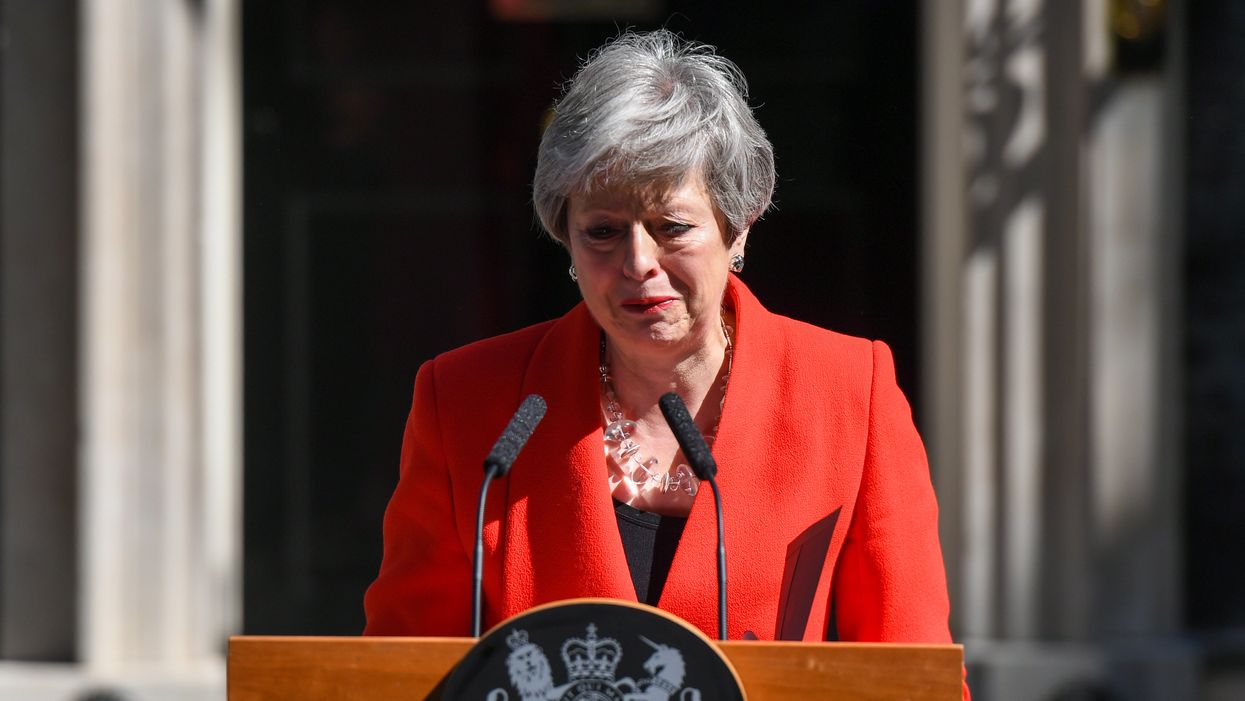
Chris J. Ratcliffe/Bloomberg via Getty Images

She will continue to be prime minister until her party selects her replacement
British Prime Minister Theresa May has announced that she will be stepping down, citing her inability to get Parliament to agree on a Brexit deal.
The European Union is a group of 28 European countries who agree to abide by an ever-growing and changing set of mutual rules and regulations. The United Kingdom joined the EU in 1969.
On June 23, 2016, citizens of the United Kingdom voted 52 to 48 to leave the European Union. Then-Prime Minister David Cameron, who had campaigned against Brexit, resigned the day after the vote. Theresa May was elected on July 13 of that year to replace Cameron and take the role of prime minister and leader of the Conservative Party.
Over the next three years, May would struggle to get Parliament to agree on the terms of the British exit, or "Brexit," from the EU. In June 2017, she tried unsuccessfully to hold a national election to earn her party a more solid majority in Parliament. This backfired, when the Conservatives lost seats. Members of her own party tried to oust her in December, but she managed to win that vote 200 to 117. In a desperate bid in late March, May offered to resign if Parliament could pass her version of a Brexit deal. Parliament rejected that deal two days later.
May said on Friday morning that she would be resigning as Conservative Party leader effective June 7, but that she would continue to serve as prime minister until her replacement is elected.
"Back in 2016, we gave the British people a choice," May said on Thursday, standing in front of the prime minister's official residence at 10 Downing Street. "Against all predictions, the British people voted to leave the European Union. I feel as certain today as I did three years ago that in a democracy, if you give people a choice you have a duty to implement what they decide. I have done my best to do that. ... Sadly, I have not been able to do so."
She continued, "It is now clear to me that it is in the best interests of the country for a new prime minister to lead that effort. So I am today announcing that I will resign as leader of the Conservative and Unionist party, on Friday the 7th of June, so that a successor can be chosen."
The UK's deadline to leave Brexit was extended to Oct. 31, 2019, since the British government could not agree on a deal.
Conservative Party Chairman Brandon Lewis has announced that nominees to replace May will be chosen by June 10. The vote to elect one of these nominees is expected to held by mid-July.
Since prime ministers in the U.K. always represent whichever party (or coalition of parties) has the majority in Parliament, whoever the Conservative Party elects as its leader will become the next prime minister. Officially, the prime minister is appointed by the queen.
When May herself was running for prime minister, her sole opponent dropped out of the race, making an election unnecessary. She was the 13th to gain this position without an election.